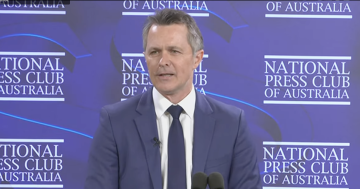 The University of Queensland (UQ) has launched an Australian-first study into childhood obesity and how to manage the weight of young people.
The University of Queensland (UQ) has launched an Australian-first study into childhood obesity and how to manage the weight of young people.
UQ said the study involved empowering families with skills, resources and knowledge to improve their lifestyles.
PhD Candidate from the School of Human Movement and Nutrition Sciences at UQ, Renae Earle said it was the first time the approach had been explored for childhood weight management in Australia.
“It aims to empower people, organisations and communities by providing skills and knowledge that can be applied in any context to help improve life in any domain,” Ms Earle said.
“Obesity is a complex and persistent problem and it’s important all potential intervention techniques are investigated.”
She said the World Health Organisation had set an ambitious goal to have no increase in childhood obesity by 2025, but recent estimates suggested no country would come close to that target.
“The empowerment method allows people to set and work towards their own goals, fostering self-determination, while also being supported by professionals along the way who ensure they have the skills and resources they need to achieve their goals,” Ms Earle said.
“This sort of program has worked for some sexual and mental health issues, as well as helping people stop smoking.”
She noted that overall, there were only 29 empowerment studies worldwide that focused on childhood weight management, none of them conducted in Australia.
Ms Earle now plans to co-design and implement Australia’s first empowerment-focused childhood healthy lifestyle program for weight management, which will be conducted with Aboriginal and Torres Strait Islander families.











